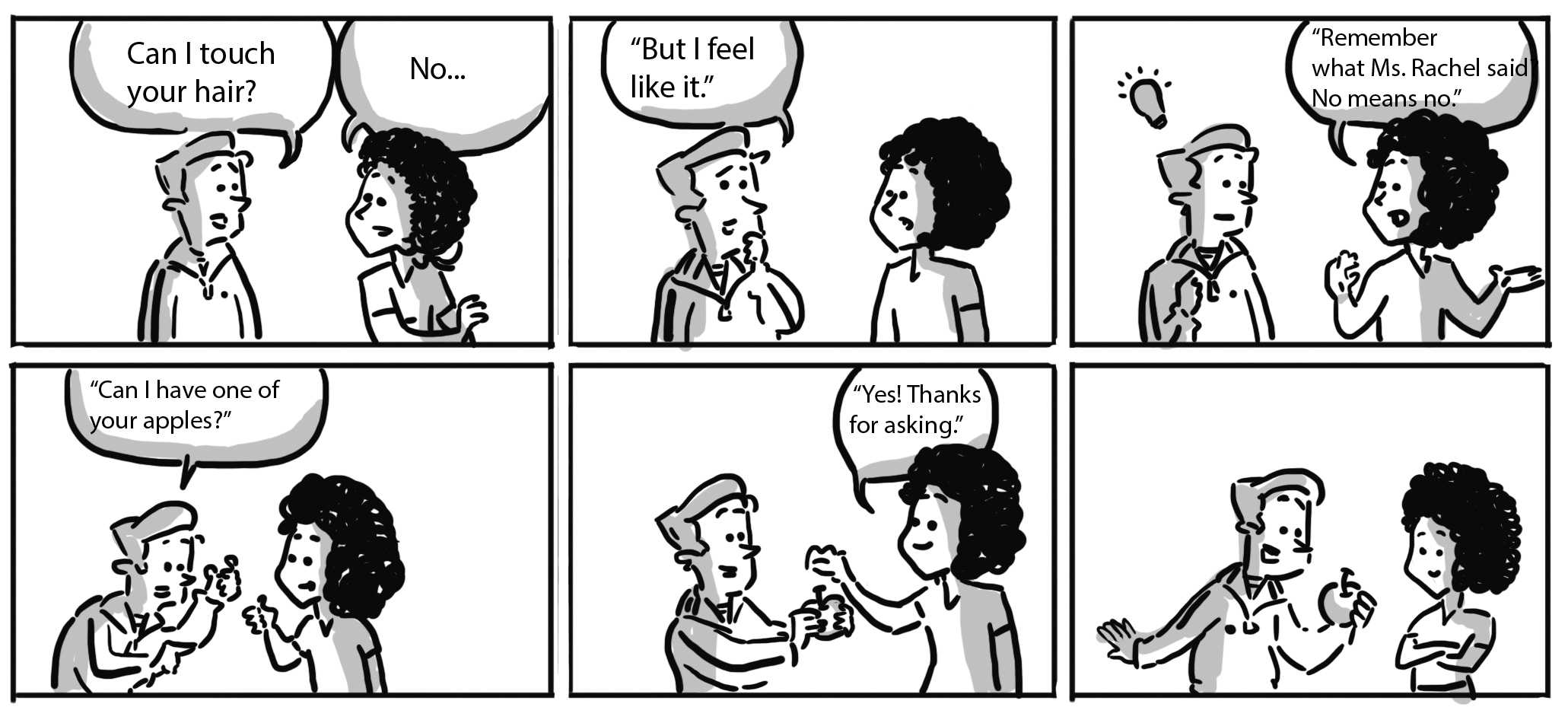In recent years, Palo Alto High School has focused heavily on sexual harassment education following alleged mis-handlings of sexual harassment allegations and an Office of Civil Rights Investigation. While some local advocates focus on holding the administration accountable, significant prevention measures must also be taken, such as consent education assemblies and curriculum.
It’s important that children learn about their bodies and are given the language to explain uncomfortable situations.
However, after a new state-mandated sex and health education curriculum for middle schoolers was implemented last school year, some parents argued that children should not learn sex education until high school. They claimed the curriculum was too graphic with explicit examples of teenagers in sexually uncomfortable situations.
However, the notion that the topic of sexuality is irrelevant to children until they enter high school is misguided and harmful. According to The National Center for Victims of Crime, children between the ages of 7 and 13 are most vulnerable to child sexual abuse. Palo Alto Unified School District is not exempt from this predicament.
Our students should be taught age-appropriate consent education starting in kindergarten to combat the sexual harassment culture in high schools and foster sexually healthy students.
Currently, the PAUSD Responsive Inclusive Safe Environment taskforce is working with Health Connected, a nonprofit Bay Area organization that specializes in comprehensive sexual health education, to design specialized curriculum for middle schools. In the future, RISE plans to design further consent and sexual health curriculums for elementary schools.
Sex education educator, Master of Social Work and member of the RISE taskforce Laura Prentiss says lessons taught this young would emphasize the idea of consent while excluding any sexual connotations it may bear.
“Reinforcing the importance of asking before you take something from someone or before kids go out to recess [requires] talking about what games are safe games and the importance of making sure that the people who you’re playing with understand,” she says.
A key piece of this consent education is teaching children how to accurately name their body parts. Students should be taught the scientific names of all parts of the body because it promotes bodily integrity and provides a much-needed foundation to identify sexual harassment.
“It’s very easy to roll in a very benign biological way talking about private parts and talking about ‘What are safe touches? What are unsafe touches? How do we ask permission?’,” Prentiss says.
Last year, Paly students attended two different assemblies about consent. While students voiced mixed sentiments, similar initiatives must be implemented into elementary schools.
It is the role of our schools to provide standardized consent and sex education to students from an early age. In doing so, teachers and administrators can ensure that all students understand the meaning and importance of consent and are equipped to better combat sexual harassment.



